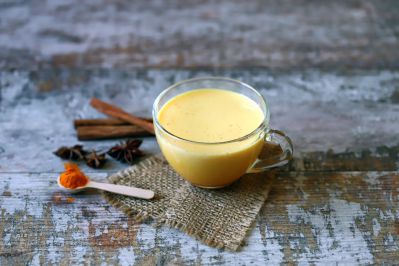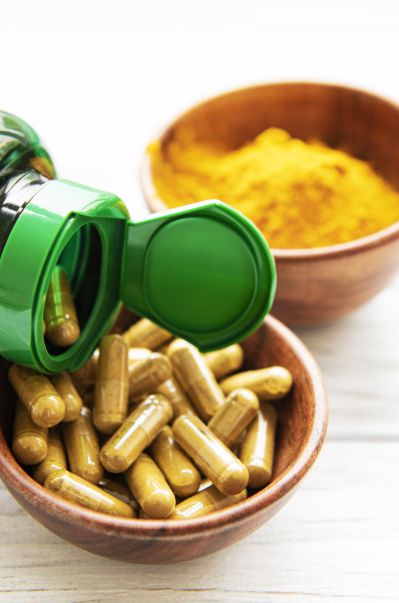Curcumin
Description : Curcumin is a yellow colored chemical compound found in turmeric and has a great health importance.
Article Details :
Curcumin is a yellow colored chemical compound found in turmeric and has a great health importance. Chemically it is known as a polyphenolic pigment, which is produced by the plant Curcuma longa (generally known as turmeric). Recently it is used by a wide range of people as herbal supplement. Moreover, curcumin is utilized as coloring agent, flavoring agent, cosmetics ingredients and therapeutic supplements. The major functions of curcumin on human health are focused on preventing various diseases includes, cancer, arthritis and related pain, Alzheimer’s disease, depression, anxiety, and others brain diseases, furthermore it also has anti-inflammatory and antioxidant property.
Difference between curcumin and turmeric
Curcumin and turmeric are closely related and have various health importance, but they are not same. The below table shows the basic difference among them –
|
Curcumin |
Turmeric |
|
|
Why it should be used?
As mentioned above, curcumin is now widely used as herbal supplements and the main reasons for consuming it are listed below –
- To reduce free radicals and reactive oxygen species (ROS) within the body, which helps to reduce oxidative stress
- To inhibit the susceptibility of developing cancers
- To prevent inflammation within the body leading to reduce pain
- To promote the growth and development of brain and to prevent various disorders related with brain
- To inhibit the growth of microorganism especially bacteria and fungus within body and reduces the prevalence of infectious diseases
- Consuming supplement containing turmeric extract with curcumin is beneficial to reduce the growth of tumors, apart from that it is beneficial to maintain normal blood sugar level and blood cholesterol level
Source
Curcumin is the main substance of turmeric. The root of Curcuma longa is known as turmeric from which the name of the curcumin is derived.
Health benefits of curcumin

Antioxidant property of curcumin
- Curcumin acts as antioxidant and helps to reduce the oxidative damage of the body caused by free radicals
- Generally free radicals are substances with unpaired electrons and it is associated with reacting with other organic compounds of body like lipid, carbohydrates, proteins and DNA, and damage them
- The antioxidant property of curcumin is responsible for scavenging the free radicals and makes them unavailable for body, hence reduces the damages of organic substances
- It helps to regulate the balance of ROS in the body hence maintains the proper physiological status, which is one of the most essential features for achieving a good health
- It has shown that consumption of curcumin is coupled with activating the antioxidant enzymes of the body leading to reduce all oxidative damages
Anti-inflammatory property of curcumin
- Inflammation is a biological protective response of the body against harmful substances like, pathogens or irritant and inflammation is related with supporting the body to fight against infections
- Chronic inflammation causes various damages of body which include metabolic disorders, cancers, Alzheimer’s disease, heart disease and others degenerative diseases that affect the body adversely. Anti-inflammatory factor can help to reduce the severity of chronic inflammation and protects the body from its harmful effects
- Curcumin has anti-inflammatory activity and helps to prevent inflammation without any side effects
Role on nervous system
- Neurotrophic factors are important molecules, made up of proteins and associated with supporting the growth, development and survival of neurons which helps in the proper functioning of nervous system
- Curcumin is related with increasing the level of neurotrophic factors and promotes brain functioning
- It helps to improve memory
- It is able to reduce the complications of age related brain function
Role on heart
-
Curcumin helps to prevent heart diseases by improving the endothelial Read more
Other articles on this particular condition:
- No article found on this particular condition
was this article helpful?



